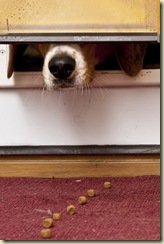Workshop Productive Knowledge Work
Besides workshops about social media I've also been giving workshops about Productive Knowledge Work. It's a lot of fun. And I'm surprised at how many people are looking for ways to become a productive knowledge worker. One theme that is addressed by the participants in almost every workshop is 'email guidelines'. They say: We should agree not to 'reply all', have clear email subject lines, etc. I shared the slides I use for you. If you have comments or questions, I'd love to hear them. Productive Knowledge Work Workshop View more presentations from Samuel Driessen . Tags van Technorati: gtd , getting things done , productivity , knowledge worker , email



